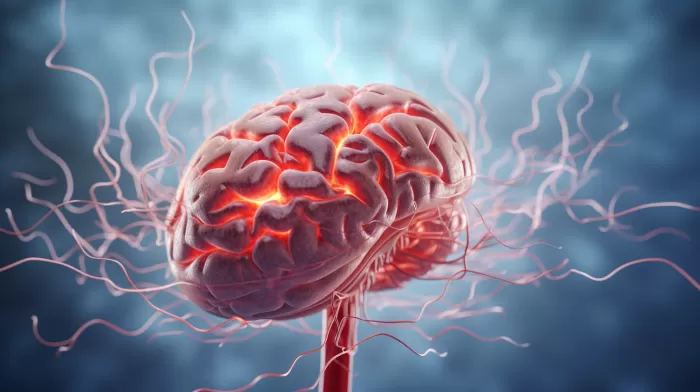As alarming as it is to find a wiry gray hair sprouting from your head or a cavernous wrinkle resting in a formerly smooth section of your face, the most alarming part about getting older is what happens to your brain. Aging causes your brain to shrink, and while some brain shrinkage is inevitable, how much brain matter you lose and how severely it affects your mental capabilities is up to you. That’s because brain shrinkage is mostly fueled by lifestyle.
In fact, a new study shows there are three factors that boost brain shrinkage more than anything else, and they are all factors that can be improved through lifestyle changes:
How poor blood vessel health promotes brain shrinkage
The health of our blood vessels and the health of our brain are linked because your blood vessels deliver blood to your brain. When blood flow to the brain is blocked or hindered in some way, it leads to stroke, brain shrinkage, and dementia. It’s no surprise then that researchers from the University of Edinburgh found that the same factors that influence your blood vessel health also have a big impact on age-related brain shrinkage.
In their study, the University of Edinburgh looked at MRI scans of the brains of 9,772 people between 44 and 79 years old. They also collected information about risk factors associated with poor blood vessel health, like smoking, high blood pressure, high pulse pressure, diabetes, high cholesterol levels, obesity (based on body mass index (BMI)), and waist-hip ratio. All these factors were linked to more brain shrinkage except high cholesterol. People who had one or more of these blood vessel risk factors also had less gray matter (surface brain tissue) and less healthy white matter (deep brain tissue).
But even though all these factors were bad for the brain, three of them were worse than the rest:
- Smoking
- High blood pressure
- Diabetes
Researchers also noticed that people with multiple blood vessel health risk factors had the worst brain shrinkage, and that brain shrinkage didn’t affect all areas of the brain equally. It took a bite out of areas tied to complex thinking skills and the areas that typically show changes with Alzheimer’s and dementia.
Get your blood vessel health back in order
Improving your blood vessel health clearly has a positive impact on your brain. But healthy blood vessels support your heart and other critical organs too. So, what are you waiting for? Start making changes now.
Quitting smoking (if you haven’t already) is a no-brainer. But high blood pressure and diabetes can be a little trickier to tackle. Luckily, many of the same tactics work for both conditions. You can lower blood pressure and blood sugar through exercise and healthy eating. There’s even a specific diet designed to help you lower blood pressure that also happens to improve blood sugar and insulin resistance — the DASH (Dietary Approaches to Stop Hypertension) diet.
The DASH diet includes tons of whole grains, fruits, vegetables, and low-fat dairy products. It also includes moderate amounts of fish, poultry, and legumes and small amounts of nuts and seeds. If you’re eating a 2,000 calorie diet, here’s how that would break out on a day-to-day basis:
- 6-8 servings of whole grains
- 4-5 servings of vegetables
- 4-5 servings of fruit
- 2-3 servings of dairy
- 6 servings or less of lean meat, poultry, and fish
- 2-3 servings of fats and oil
Following these tips is a good starting point for healthy blood vessels, but you may also want to give your blood vessels a little extra boost by drinking beetroot juice or more green and black tea.
*Sources:
- Smoking, high blood pressure, diabetes and obesity each linked to unhealthy brains — MedicalXpress
- Associations between vascular risk factors and brain MRI indices in UK Biobank — European Heart Journal
- Ageing and the brain — Postgraduate Medical Journal
- Brain Health Is Connected to Heart Health — Centers for Disease Control and Prevention
- DASH Eating Plan: An Eating Pattern for Diabetes Management — Diabetes Spectrum
- DASH diet: Healthy eating to lower your blood pressure — Mayo Clinic*



